Australian fuel company Ampol has partnered with Japan’s largest oil company, ENEOS Group, to investigate the production of advanced biofuels including sustainable aviation fuel in the Australian state of Queensland. The two companies have signed a Memorandum of Understanding to jointly explore developing Ampol’s Lytton refinery in Brisbane, the state capital, to produce up to 500 million litres of SAF and renewable diesel annually, using locally-sourced feedstocks including agricultural waste and animal fats. The project will combine Ampol’s refining and distribution infrastructure and local market knowledge with the expertise of ENEOS in refining technology and energy transition. The companies have also signed an MoU with the Queensland government to explore investment and project development as part of the Queensland Biofutures 10-year Roadmap. One of the government’s key objectives is to establish SAF refineries throughout the state, Australia’s second-largest by area, to produce fuels for both domestic use and export.
The Asia-Pacific region has lagged behind both Europe and the US in SAF development, and despite intense lobbying from the aviation sector, Australia has been one of the slowest developed nations to progress the new fuels in the APAC region. Among the leaders have been Singapore, where renewable energy group Neste is preparing to activate a new facility with capacity to produce up to 1 million tonnes of SAF per year, and Japan, where multiple SAF production programmes are being explored or progressed. Although it remains a major exporter of coal, Queensland is increasingly focusing on renewable energy, with green hydrogen producer Fortescue Future Industries also exploring renewable energy production in the state. The new Ampol/ENEOS SAF partnership provides a significant boost to Australia’s renewable energy hopes and needs.
Matt Halliday, Ampol’s Managing Director and CEO, said his company was committed to supporting the development of a biofuels value chain in Australia and to working with like-minded partners to expedite new energy technologies. “Biofuels and synthetic fuels have an important role to play in energy transition, particularly in hard-to-abate areas such as aviation and heavy industrial sectors like mining,” he said. “We are excited to partner with a global leader like ENEOS to further assess opportunities to repurpose our existing infrastructure and build new supply chains.
“Lytton has a large and highly-skilled workforce and existing manufacturing infrastructure and capabilities that can be leveraged to deliver these future fuels. Lytton is also located next to a key demand centre [directly opposite Brisbane Airport] and to the Brisbane River, presenting an opportunity to become an energy hub that can serve major parts of the Queensland economy.”
Saito Takeshi, ENEOS Representative Director and President, said his company was keen to participate in decarbonising the air transport sector in the Asia-Pacific region through the development of value chains and a stable supply of biofuels, especially SAF.
“Integrated supply chains, from feedstocks to manufacturing and distribution infrastructure, will be critical to the development of a successful and sustainable biofuels industry,” he said. “Queensland is uniquely positioned given the availability of high-quality feedstocks from established industries. In addition, the location of Ampol’s manufacturing and distribution assets provides a great platform from which to explore SAF production.”
In the first phase of their collaboration, Ampol and ENEOS will explore potential counterparties in Queensland to provide feedstock for fuel production and demand for product offtake. The companies also will work with the Queensland government as it seeks to attract investment in clean energy.
“Queensland’s Energy and Jobs plan sets out our path to a low-emissions future,” said the State’s Deputy Premier, Steven Miles. “As part of decarbonisation, the government is working to set Queensland up as the leading location for the production of green jet fuels.”
Miles said Queensland was recognised internationally as one of the best locations for a SAF supply chain due to a rich supply of feedstock and manufacturing strengths. “This project has the potential to unlock significant benefits for our economy by generating good, skilled jobs and opening export opportunities in a new industry,” he added. “The Queensland government’s plan is to establish SAF refineries across the state and position ourselves as one of the world’s best SAF suppliers.”
As well as their Brisbane project, Ampol and ENEOS will also consider opportunities to participate in the Japanese government’s programme to invest in projects which can help the nation to achieve carbon neutrality by 2050. As part of this ambition, the Ministry of Land, Infrastructure, Transport and Tourism wants SAF to comprise 10% of aircraft fuel use by 2030.
The announcement was welcomed by the Sustainable Aviation Fuel Alliance of Australia and New Zealand (SAFAANZ), whose more than 60 members include Qantas, Virgin Australia, Air New Zealand, Airbus, Boeing, major airports, fuel companies and renewable energy producers.
“A domestic supply of sustainable aviation fuel and renewable diesel will not only enable greater emissions reduction in the aviation and transport sectors, it will also present Australia with an incredible opportunity to enhance its fuel security position,” said the group’s chair, Terri Butler.
As well as providing Australia with “a crucial foothold” in the global renewable fuels sector, the group believes the Ampol-ENEOS collaboration could provide strong opportunities for the agricultural sector.
“This project is particularly important for Queensland,” it said, “where growers and producers, without any domestic options, have been exporting their high-quality feedstock overseas to refiners, putting Australia in the odd position of importing renewable fuel made by its own exports, grown in its own soil.”
Photo: Brisbane Airport


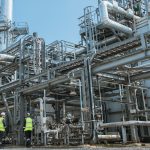
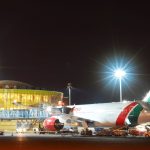

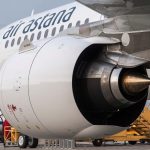

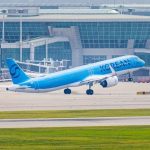



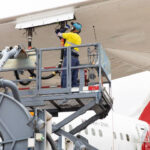


More News & Features
UK government starts new consultation on SAF revenue certainty mechanism
African Development Bank and Japanese industrialist unite to explore SAF production in Africa
LanzaJet and KMG agree to progress SAF production project in Kazakhstan
SkyNRG says e-SAF and carbon removals should not be competing strategies for aviation decarbonisation
South Korea announces mandatory SAF blending for departing international flights from 2027
Catagen launches SAF production company and signs offtakes with Ryanair and Shell